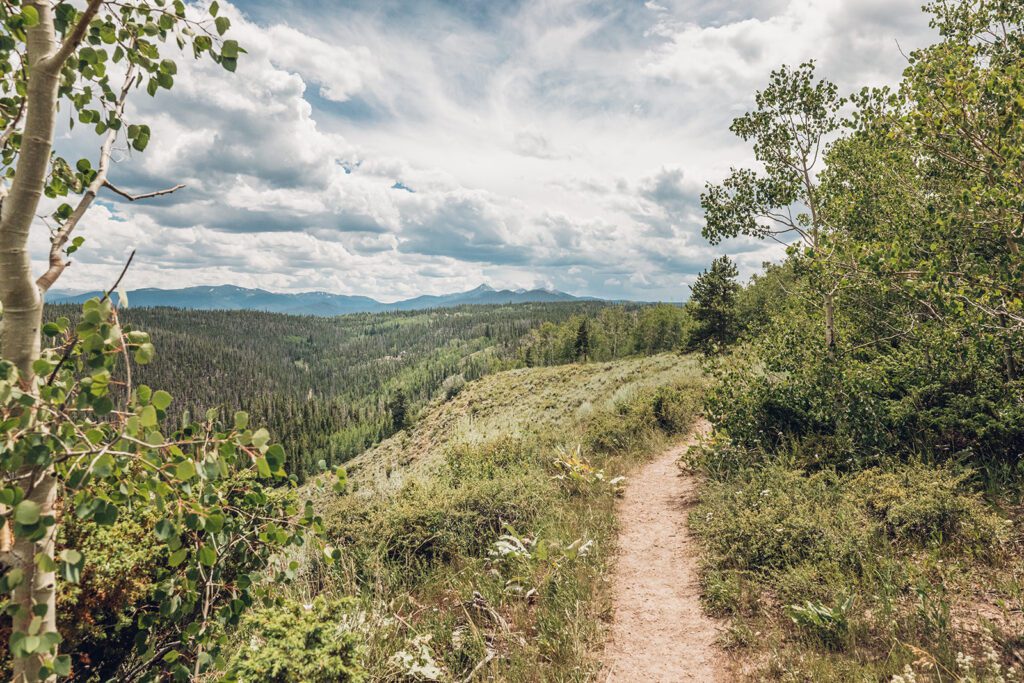Colorado’s stunning landscapes, towering peaks, and pristine wilderness areas make it a hiker’s paradise, drawing outdoor enthusiasts from near and far to explore its scenic trails. From leisurely strolls through wildflower-filled meadows to challenging ascents to mountain summits, there’s a hiking adventure for every skill level and interest in the Centennial State.
If you’re planning a summer hiking excursion in Colorado, here are some essential tips to ensure a safe, enjoyable, and memorable experience:
Know Before You Go:
-
- Research your chosen trail thoroughly before setting out, including trail length, elevation gain, difficulty level, and any potential hazards or closures. Check weather forecasts and trail conditions, and be prepared to adjust your plans accordingly based on current conditions.
- Obtain a map of the area and familiarize yourself with the trail route, landmarks, and points of interest. Consider downloading offline maps or using GPS navigation apps to help stay on course, especially in remote or unfamiliar terrain.
Gear Up for Success:
-
- Dress in layers and wear moisture-wicking clothing suitable for changing weather conditions and varying terrain. Choose sturdy hiking boots with good ankle support and traction to navigate rocky, uneven trails safely.
- Pack essential gear and supplies, including plenty of water (at least one liter per hour), high-energy snacks, a first-aid kit, sunscreen, insect repellent, a headlamp or flashlight, a multi-tool or knife, and a fully charged cell phone or satellite communicator for emergencies.
Start Early and Pace Yourself:
-
- Beat the heat and crowds by starting your hike early in the morning, when temperatures are cooler and wildlife is more active. Allow plenty of time to complete your hike at a comfortable pace, taking breaks as needed to rest, hydrate, and refuel.
- Listen to your body and know your limits. Altitude and elevation gain can affect your stamina and energy levels, so pace yourself accordingly and be prepared to adjust your pace or turnaround point if you start feeling fatigued or unwell.
Respect Nature and Leave No Trace:
-
- Practice Leave No Trace principles to minimize your impact on the environment and preserve the natural beauty of Colorado’s wilderness areas. Stay on designated trails, avoid trampling vegetation, and pack out all trash, including food scraps and toilet paper.
- Be mindful of wildlife and give animals plenty of space to roam undisturbed. Keep a safe distance and never approach or feed wildlife, and be aware of potential encounters with bears, mountain lions, and other wildlife species.
Be Prepared for High Altitude:
-
- Colorado’s high altitude can pose challenges for hikers, including decreased oxygen levels, increased risk of dehydration and altitude sickness, and faster sunburn at higher elevations. Take steps to acclimatize gradually by spending time at lower elevations before attempting high-altitude hikes.
- Stay hydrated by drinking water frequently and avoiding alcohol and caffeine, which can contribute to dehydration. Pace yourself and take breaks as needed to catch your breath and rest, especially during steep ascents or at higher elevations.
Tell Someone Your Plans:
-
- Before heading out on a hike, let someone know your planned route, expected return time, and emergency contact information. Check in with them upon your return to confirm your safe arrival back.
By following these tips and exercising caution and preparedness, you can enjoy a safe and rewarding summer hiking experience in Colorado’s breathtaking wilderness. So lace up your boots, pack your gear, and hit the trails to explore the beauty and majesty of the Rocky Mountains. Happy hiking!




